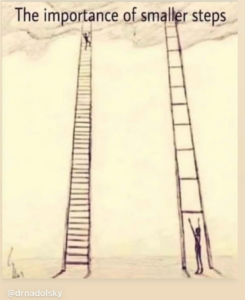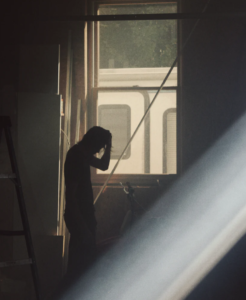Have you ever had those moments where you are literally so frustrated, embarrassed and ashamed by your child’s behavior that you start to feel DEFEATED? Where you start to think, “what am I doing wrong?” “where did I screw up with my parenting that my child acts like this?”. Hopefully you have never felt this way, but if you have, know that this feeling of defeat is common and something that most parents experience at one point or another.
For me it’s that accumulation of when my child yells at me that he “doesn’t love me anymore” because I won’t let him eat candy for breakfast or get his way. Or when he refuses to follow simple directions and rules that turn into daily battles that rattle my last nerve. Or when I get the report that MY kid is the one hitting others on the playground even though we have talked about having “Gentle Hands” over 1,000 times. This is when I begin thinking to myself…now what? I don’t know what to do anymore! How is my child so entitled, rude, un-appreciative etc.? I start to feel like nothing is working and I’ve failed.
These thoughts and feelings can be suffocating as a parent, and it often leads us to feel hopeless, helpless and unsure where to go from here. It is often isolating as well living with your frustration and shame, while you browse social media and see everyone else’s kids on their best behavior and doing all the things you wish your child would do. The feeling of being ashamed of your own child can be a dangerous and painful reality to face. So, what can you do if you find yourself here in this shame and guilt spiral?
First of all, please realize YOU ARE NOT ALONE! You are not alone in your feelings of guilt, shame and defeat, AND you are not alone in having a child whose behaviors are challenging!
A 2015 national parent survey conducted by the organization Zero To Three of parents of children ages birth to 5 years old indicated that 73% of parents say that parenting is their biggest challenge in their lives and 90% of moms and 85% of dads feel judged by others on their parenting abilities.
In addition, a recent analysis of 2016 National Survey of Children’s Health data published online in JAMA Pediatrics indicated that as many as one in six U.S. children between the ages of 6 and 17 has a behavioral or mental health disorder.
What this shows us is that most of us are having a challenging time with parenting and are feeling judged by others on our abilities as a parent.
I can tell you that as a Licensed Educational Psychologist who specializes in early childhood behavior and mental health interventions….and literally teaches other people how to support their children with problem behaviors for a living …I am right here with you! No amount of trainings, books, lectures and strategies could have prepared me for my strong-willed child. And the parent guilt I experience when I see some of my child’s behaviors makes me feel like a failure beyond measure.
But what has helped me is learning that I am not alone. Parenting is hard for everyone and we all feel self-conscious and judged. I used to be ashamed and try to hide my parenting struggles but have quickly learned how helpful and liberating it is to share my experiences with other parents and caregivers, because most of the time they are actually feeling the same way I am! And being able to vent and share in a safe place with others often gives me the strength and confidence I need to pick myself out of my self-wallowing and get back on my parenting saddle!

STEP NUMBER ONE in re-bounding from defeat is finding those healthy and judgement-free connections with others where you are able to vent, share experiences and realize you are not alone on this journey. Having a support system in place can be the jumping off point you need to feel motivated enough to dust yourself off and feel empowered to try again.
STEP NUMBER TWO will be to come up with a goal for improving your child’s behavior. Of course you probably have a lot of problems you want to solve with your child’s behavior, but I suggest tackling the mountain of behavior issues you may be seeing with your child by STARTING SMALL.
Think of ONE routine or part of the day that is the most challenging for you and make a decision to start with just that first. Of course, we want our child to follow directions ALL OF THE TIME, but for a plan to work and for you to truly start to see progress, we need to START SMALL. Whether it is the brushing teeth battle at nights, the mean words in the car or hitting during outside play….Pick ONE activity and ONE behavior and start there.
Once you have your one activity or behavior you want to improve…
STEP NUMBER THREE is pick ONE SMALL thing YOU as the adult can do DIFFERENTLY to set up the situation in order to PREVENT the behavior from happening, and/or one small thing you will do differently to REPOND if/when the behavior occurs.
One thing we know for sure if that as much as we try to control others, we only have control over our own behavior! So, if we want our child’s behavior to change, we need to change what WE do as adults! And this means changing or tweaking what WE do BEFORE the behavior to PREVENT it or what WE do AFTER the behavior to RESPOND to it.
These PREVENTION and RESPONSE steps should be small little tweaks that are easy for you and manageable to implement and stay consistent with. If you need ideas for these things, feel free to browse our Visual Resources section and other Blog Posts for examples of behavior tips for PREVENTION and RESPONSE.
Once you pick an idea that seems manageable for you to try, remember that even if it might seem too little to make a difference, sometimes it is these small steps that help us gain the momentum we need to keep pushing forward. Sometimes when we try to make big changes quickly, these steps are too large and feel out of reach, which prevents us from getting started or keeping it going.

